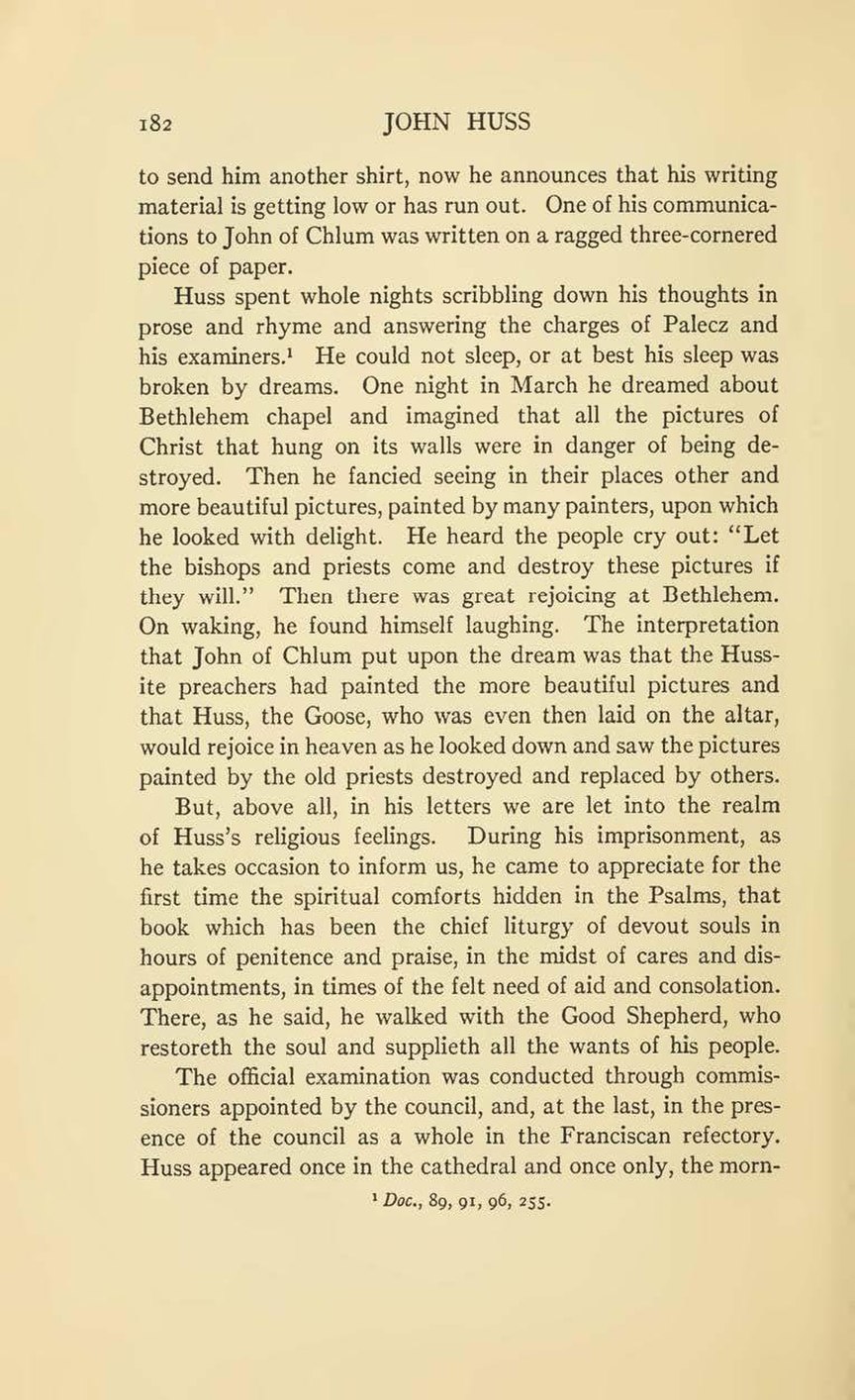to send him another shirt, now he announces that his writing material is getting low or has run out. One of his communications to John of Chlum was written on a ragged three-cornered piece of paper.
Huss spent whole nights scribbling down his thoughts in prose and rhyme and answering the charges of Palecz and his examiners.[1] He could not sleep, or at best his sleep was broken by dreams. One night in March he dreamed about Bethlehem chapel and imagined that all the pictures of Christ that hung on its walls were in danger of being destroyed. Then he fancied seeing in their places other and more beautiful pictures, painted by many painters, upon which he looked with delight. He heard the people cry out: “Let the bishops and priests come and destroy these pictures if they will.” Then there was great rejoicing at Bethlehem. On waking, he found himself laughing. The interpretation that John of Chlum put upon the dream was that the Hussite preachers had painted the more beautiful pictures and that Huss, the Goose, who was even then laid on the altar, would rejoice in heaven as he looked down and saw the pictures painted by the old priests destroyed and replaced by others.
But, above all, in his letters we are let into the realm of Huss’s religious feelings. During his imprisonment, as he takes occasion to inform us, he came to appreciate for the first time the spiritual comforts hidden in the Psalms, that book which has been the chief liturgy of devout souls in hours of penitence and praise, in the midst of cares and disappointments, in times of the felt need of aid and consolation. There, as he said, he walked with the Good Shepherd, who restoreth the soul and supplieth all the wants of his people.
The official examination was conducted through commissioners appointed by the council, and, at the last, in the presence of the council as a whole in the Franciscan refectory. Huss appeared once in the cathedral and once only, the morn-
- ↑ Doc., 89, 91, 96, 255.
